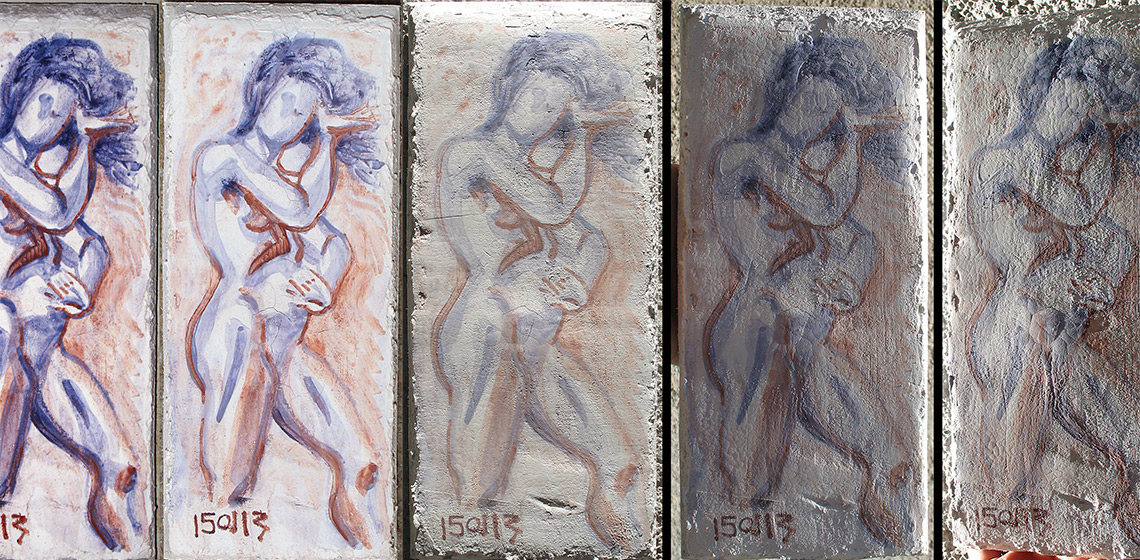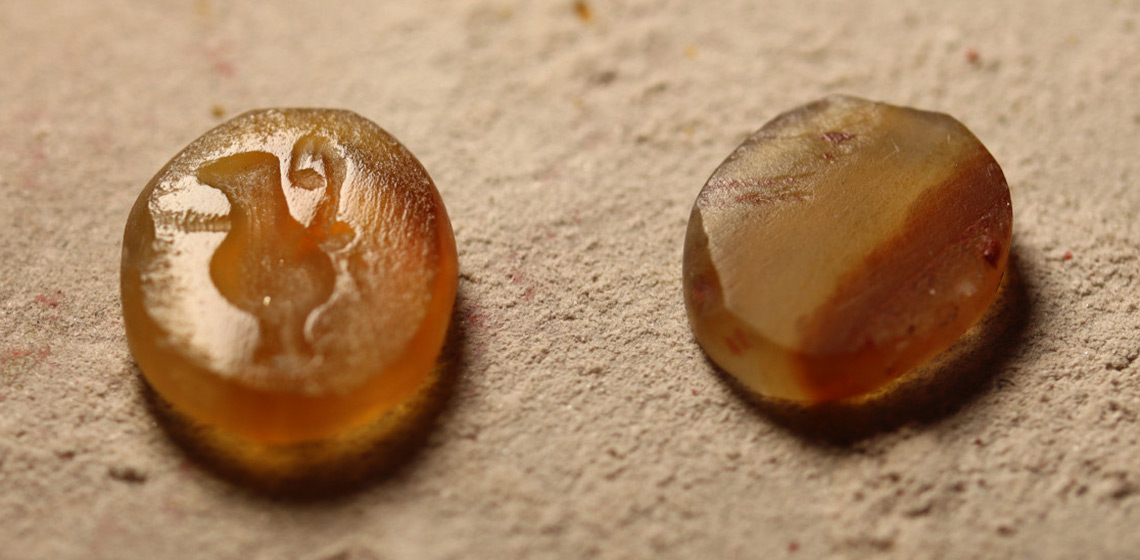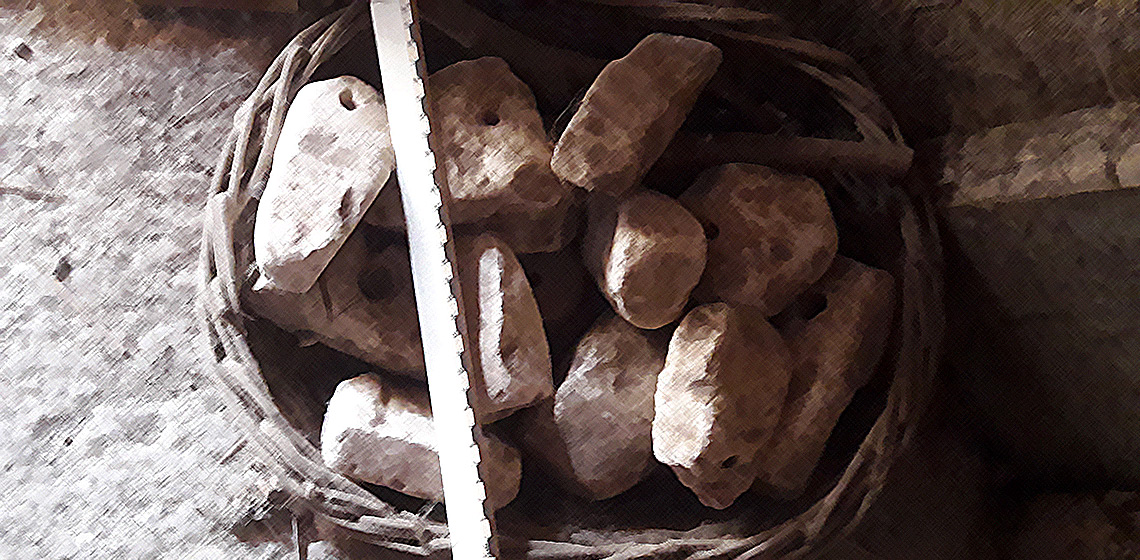Fresco Mixtures with Dried Lime Plaster: Cameron’s Experiments Revisited
Introduction
During the Bronze Age, the craftspeople of the eastern Mediterranean practiced a form of reuse or recycling: fragments of mortar were used as aggregates in lime mixtures intended for walls or floors (Shaw, 1973, p.222; Brysbaert, 2003, pp.168-173, pp.175-176; Jones, 2005, p.220; Brysbaert, 2008, p.118). Such a mixture was found in a house in the Akrotiri settlement of Santorini, in a part of the wall that was intended to be painted (Jones, 2005, p.220).













